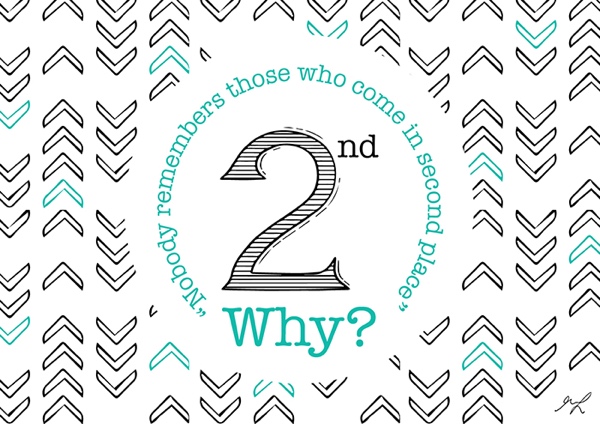As the world celebrates those who attain first place, society has a knack of making second place winners feel like first place losers. The columnist sheds light on this topic through her experience.

Last April, I came in second in one of the categories under the “Dubai Government Excellence Program” awards. I was over the moon for this milestone achievement in my career. Since the winners’ names were announced in the local papers and media, felicitations hailed on me from far and near. Yet, what staggered me the most were the people who voiced disappointment: “Hard luck this time, hopefully you will get first place next time.”
I was astounded as I thought to myself: “Do these people even know what I have achieved?” You see, to be nominated was itself a great honor. But to actually go all the way, competing against the thousands of eligible, highly-competent government employees and to be shortlisted as the top 3 was more than many can dream of. Very few have achieved such a merit.
Conversations and interactions showed me that most people’s understanding of success revolved around being the best at something. To them, success in a race meant attaining first place and everything else was a failure. A quick browse of the Internet resulted in plenty of articles of second place being linked to loss and bitterness. I even found common quotes such as “Nobody remembers those who come in second place” flooding our media. This muddled me even more as I remembered my 3rd place feat in the world championship of public speaking. That journey and experience taught me that we cannot always name the first place winners, who may have won but left no memorable impact. So, why this obsession with first place? Why are second and third places not celebrated equally?
I am aware that people should not be penalized for aiming to reach the top yet I feel this one definition of success should not be so narrow. If I was this ecstatic about my second place win, why did others see it as a loss? Why do many consider anything other than first place a failure? Why is second best not good enough? Why do we have this obsession when more often than not, the difference between first, second and third are very small margins?
It is worrisome that this is becoming a widespread mentality, mainly for fear of it further igniting an ugly future of extreme competitiveness, where future generations will blindly neglect the values and virtues we are trying hard to instill in them. How scary is it if a child grows up to only value being first with no appreciation of anything else?
I do not wish to get into the numerous reasons why many have this mentality, I’d rather simply bring it to your attention. My reiki teacher always reminds me that increased competitiveness leads to decreased happiness in most societies.
At the end of the day, being first is simply a status and it is about time that we acknowledge the triviality of second, third and fourth place. Through this article, I simply hoped to shed some light on the need to develop a healthier perspective on everything that is not first place and create a larger sense of success and achievement. Are we not all winners for trying to achieve our goals regardless of the path we take? Think about it. In the meantime, I shall continue to proudly wear my second place badge.



